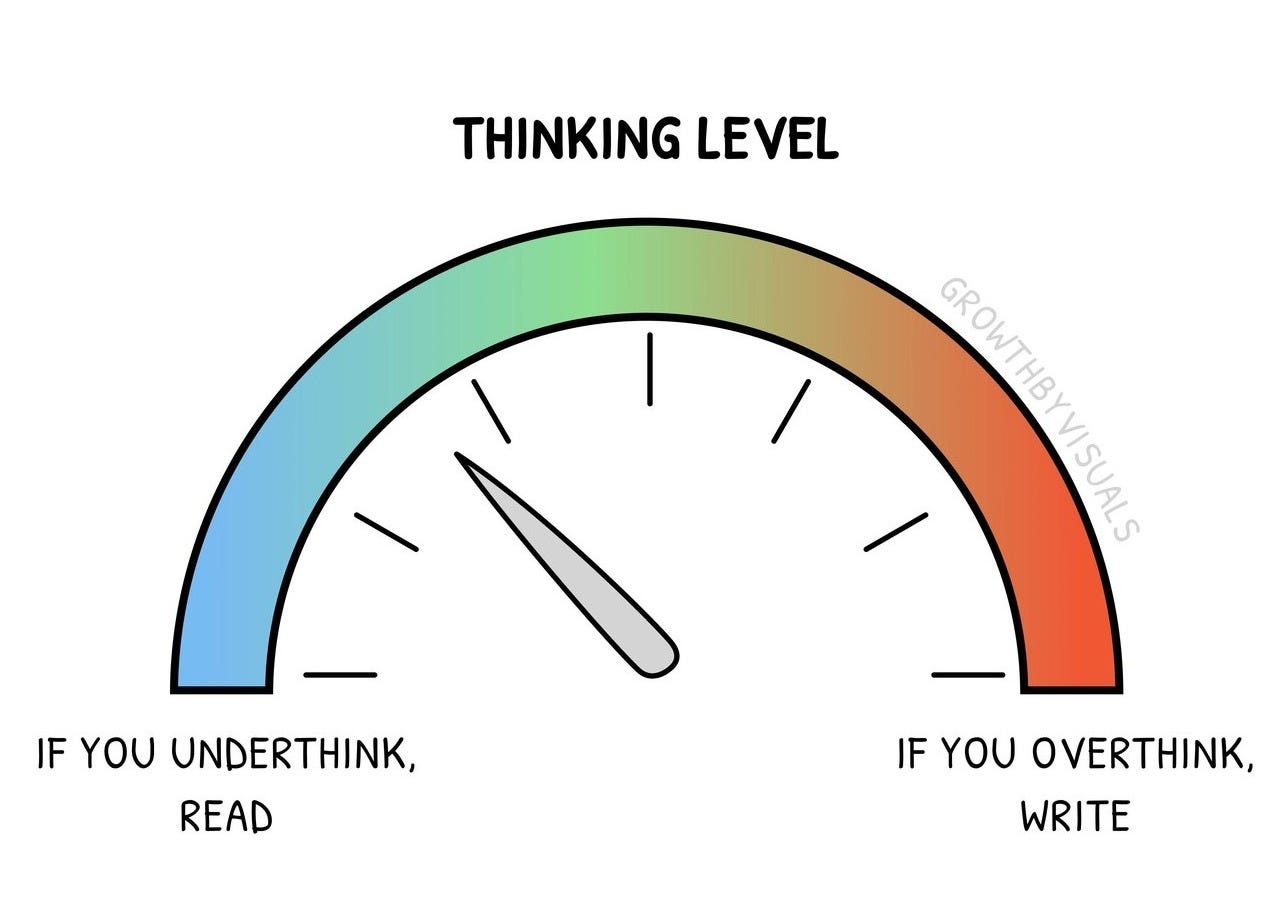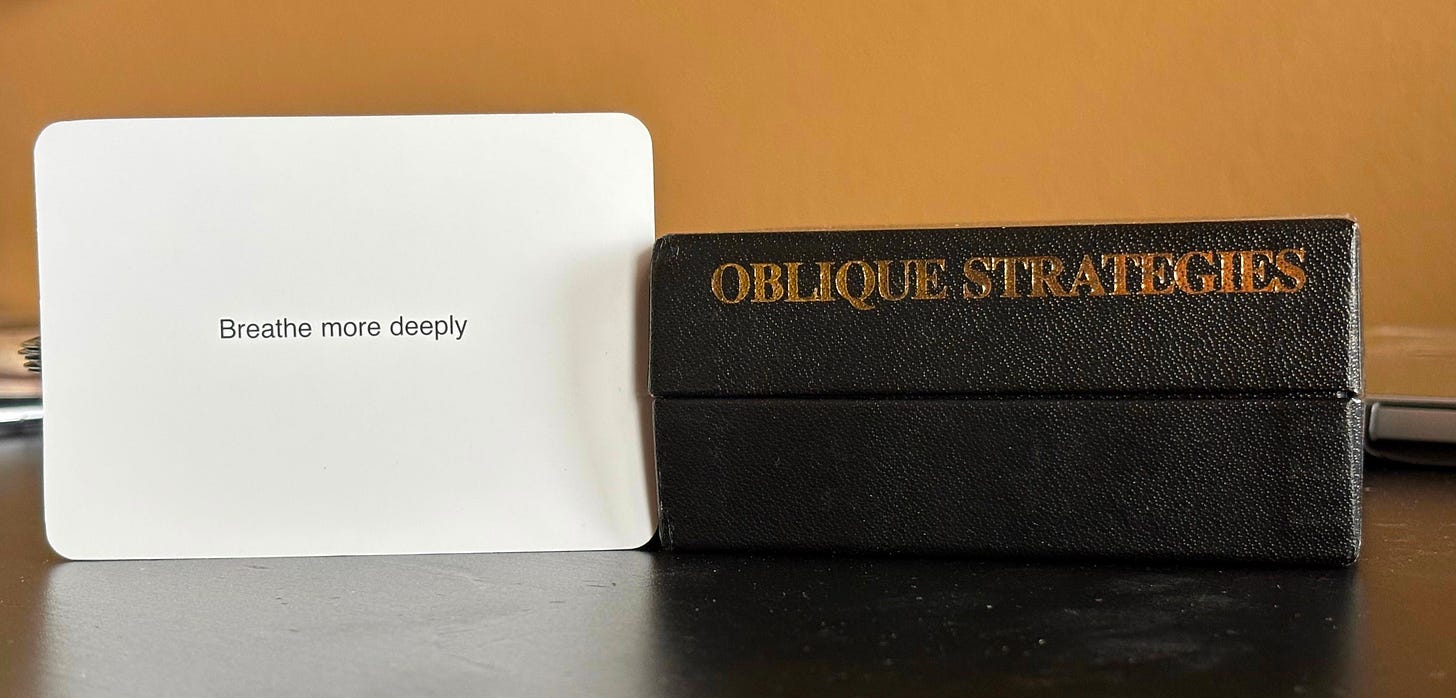Spring Break
Best laid plans
Last week, I had grand plans during my Spring Break. I wanted to read a book during the week and write every day. My hope was that I could write a bunch of Substack posts on all of the random things that have been rattling around in my brain as I prepare to enter the last 25% of the school year. I planned to write about upcoming standardized tests. I planned write about how important it is to rest and unplug from work. I planned to write about the current administration’s efforts to dismantle the Department of Education. I planned to write about a new learning experience I’m designing for the spring. I planned to read in the morning and write in the afternoons.
It turns out that my body and brain had other plans. My body became so lazy that I could barely motivate myself to take out the garbage. My brain became so scattered and blurry, that all I could manage to write were a few sentences of drivel in my journal. Not to fret! It was still early in the week. I had an entire week ahead of me to motivate myself to write. So, I settled into the novel I was reading and waited for inspiration to strike. Tuesday: nothing. Wednesday: still nothing. Mid week, I remembered a quote I had seen on Growth by Visuals by the artist Hidde Douna.
This advice, although cleverly written and sketched, is not new to me. In On Writing, Stephen King writes, “If you don't have time to read, you don't have the time (or the tools) to write. Simple as that.” I’ve always loved that quote, and while I don’t think I will ever have the ability to crank out as many daily words as King does, whenever I’ve been stuck in the past, I return to the stack of unread novels on my nightstand.
On Thursday, I got a little desperate and thought I should revisit an older piece I wrote. I read it again and remembered why I shelved it in the first place. On Friday, I started sweating a bit. Nothing was coming and I was beginning to run out of Spring Break. I pulled out my stack of Oblique Strategies by Brian Eno and Peter Schmidt. Perhaps the universe (with Eno and Schmidt) could advise me on what to write?
I stayed up late reading Tomorrow, and Tomorrow, and Tomorrow by Gabrielle Zevin and woke early Friday morning to finish it. It was an excellent read and I’m glad I spent the week with Sam and Sadie and Marx. With the week coming to a close, I noticed a strange phenomenon: the more I let go of writing something great the less stress I felt about writing anything at all. I allowed myself to be lazy this week and still managed to read a 400-page book. That shows some discipline, right? Maybe my laziness and creativity are connected in a similar way to that of Tim Kreider’s and Austin Kleon’s. It turns out that it’s not only possible, but okay to be both lazy and disciplined!
I had a wonderfully lazy Spring Break. I went for a walk every day. I read every day. I hung out with my teenage kids (as much as they would let me). I drank tea and bourbon and binge-watched old Twilight Zone episodes every evening before bed. I don’t regret any day I spent not doing what I intended. Now that Monday is here, the grind returns. April is standardized testing month. May is our last month of school. Pretty soon, I’ll be packing up my classroom and getting ready for a summer break.
Whether your Spring Break has come and gone, or just started, I hope you find time to rest and do nothing for as long as possible. Those household chores can wait. Your brain and body need a break from the hurly-burly of school life. If you fancy yourself a writer, and have plans to start that great-American novel, remember Toni Morrison:
I disavow that term [writer’s block]. There are times when you don’t know what you’re doing or when you don’t have access to the language or the event. So if you’re sensitive, you can’t do it. When I wrote Beloved, I thought about it for three years. I started writing the manuscript after thinking about it, and getting to know the people and getting over the fear of entering that arena, and it took me three more years to write it. But those other three years I was still at work, though I hadn’t put a word down.
Toni Morrison, in a 1994 interview with Claudia Dreifus
How are you spending (or how did you spend) your Spring Break? Read an amazing book? Take any great pictures? Eat any fabolous food? Let me know in the comments.
Have a great week!
— Adrian
Resources
The Daily Routines of Great Writers | The Marginalian
I’m obsessed with learning about how great writers do their great writing. Even if most of the advice is nothing I would ever try, I like imagining that one day, I can share that I wrote something incredible while spending my days reading, going for long walks, and napping. My favorite is Kurt Vonnegut’s letter to his wife.
I love a great visual! I frequently use images in my classroom to explain challenging concepts to my students. Jono Hey is probably my favorite illustrator online. I love his book, Big Ideas, Little Pictures and only wish I could afford to purchase his learning sketches as posters for my classroom.
The Twilight Zone: Five Observations on Maple Street
I have so many favorite Twilight Zone episodes. I especially love Monsters are Due on Maple Street. We read and analyzed it in class and it was a huge success!
I have no interest in instant cures for writer’s block, however, I found this video by Austin McConnell fascinating. It was a wonderful rabbit hole for procrastinating my writing for the week.
Is It Real? 25 Famous Writers on Writer’s Block | Literary Hub
Do you think that the infamous writer’s block is a real phenomena? This is great article with some excellent quotes from famous authors. Plus, I just love LitHub!
Oblique Strategies, text by Brian Eno and Peter Schmidt
If you don’t have access to the physical cards, this online version is very helpful. Just click for a new, randomized pick. Austin Kleon made his own version of Steal Like an Artist strategies for when Eno’s Oblique Strategies are too esoteric!
If you haven’t read Tomorrow, and Tomorrow, and Tomorrow, I highly recommend it!
Although I don’t have a physical copy of Peter Shull’s latest novel, I’ve been reading along with him on his wonderful Substack, lower midlist. It’s a great read! No matter what grade level you teach, you will relate to Will Ables’ experiences.






Awww Wilber! And, twilight zone?? I need to start watching them! I had so much fun with our story we read and learned about “herd behavior”.
I’m in Mexico with family but I brought my laptop to eventually grade essays!